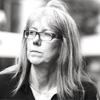When Austria assumed the rotating presidency of the Council of the European Union this month, the Economist ran a cartoon of the country’s right wing, anti-refugee chancellor, Sebastian Kurz, dreaming of a map of Australia with the words “No people smuggling” embedded in it.
It illustrated how Australian refugee policies lead the world in brutality, literally and metaphorically.
German chancellor Angela Merkel has ordered camps to be set up along the Austrian border to detain asylum seekers while authorities “check their papers”.
The new right wing Italian government is implementing what is described as “a tough, Australia-style, turn-back-the-boats regime”.
After weeks of separating children from their refugee parents, US president Donald Trump has signed an executive order allowing him to detain refugees indefinitely.
To date, however, no country in the West comes close to the bipartisan barbarity of Australian governments, past and present. Many see Australia as a role model in inhumanity.
In prime minister Malcolm Turnbull’s first phone call with the new US president, he explained that even a “Nobel Prize-winning genius” arriving by boat would not find sanctuary in Australia.
“That is a good idea. We should do that too. You are worse than I am”, Trump replied.
When the president announced in early 2017 that he would ban immigration from seven Muslim-majority countries, Australia’s then immigration minister Scott Morrison gloated, “The rest of the world is catching up to Australia”.
A few recent examples convey the depths of the inhumanity that Australian refugee policies entail.
When a 63-year-old Hazara refugee, known as Ali, was in the final stages of terminal lung cancer after being held on Nauru for five years, the initial response of Australian Border Force (ABF) was to tell him he could go to Taiwan to die –where he knows nobody and does not speak the language.
ABF also offered him $25,000 to return to Afghanistan, the country he fled. Only after an outcry by doctors, refugee supporters and even some within the ABF was he allowed to come to Australia for care in the last few weeks of his life.
The mother of Fariborz Karami, an Iranian asylum seeker driven to suicide on Nauru in June, now has to plead with ABF to give her son’s body back so she can bury him. In a letter that begins, “Hello my oppressors and heartless prison officers, hello again ABF”, Fazileh Mansour Beigi writes:
“For five years you incarcerated me and my innocent children in Nauru and ignored us … My 26-year-old son had his last breaths in your mouldy tents and closed his beautiful eyes to your abomination, injustice, and disgusting policies.”
Hidden from the public eye, these prison islands are crime scenes. Since 2014, 12 asylum seekers have died on Manus Island and Nauru. Thousands have been physically and psychologically traumatised by the conditions of their indefinite detention, by sexual assault, by torture and by neglect.
More than 130 children are still being held on Nauru. There are another 179 children in “community” detention in Australia.
The Manus Island and Nauru detention centres were reopened by the Gillard Labor government in 2012. In the run-up to the 2013 federal election, returned leader Kevin Rudd upped the ante, announcing that any adult or child fleeing persecution by boat would never be settled in Australia and would rot in offshore detention indefinitely.
The subsequent Abbott Liberal government’s program (Operation Sovereign Borders) “stopped” boat arrivals by turning back all refugee vessels and paying Indonesian people smugglers to do the same.
Since then, the Australian Navy has turned back dozens of boats carrying hundreds of people whose fate is unknown. A veil has been drawn over these facts, using the double speak of security: that “operational” or “on-water” matters cannot be spoken about.
In a further act of silencing, in 2015 the Border Force Act was passed, criminalising the reporting of abuse by anyone working on Manus or Nauru.
Offshore detention is deliberately brutal to force asylum seekers to despair so they will go back home to whatever they have fled. If news of these horrors reaches the countries from which refugees are fleeing (and the Australian government spend millions on advertising to make sure that it does), so much the better.
The remoteness of the detention centres is no accident either. Offshore detention keeps refugees out of the reach of medical services, legal representatives, activists and journalists. It makes it easier to dehumanise and demonise them as faceless hordes. The costs of this “out of sight out of mind” policy are deaths and trauma about which most Australians still know little. The silence too is bipartisan.
These crimes show Australia to be the world leader in inhumanity. The detention centres must be closed. All those in them must be allowed to settle in Australia. Then we could cheer were the rest of the world to play catch-up.









